Eid ul Adha Mubarak All Muslims: Happy, Letters, Arabic, Islamic Bakra Eid Mubrak
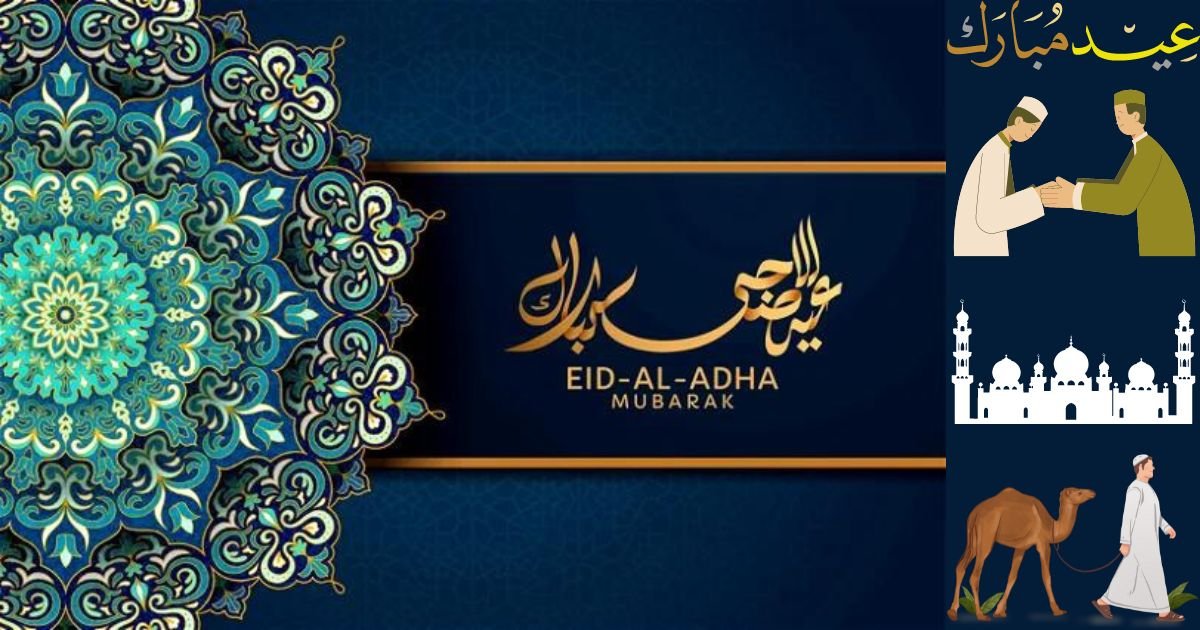
Introduction
Eid ul Adha Mubarak, also known as the Festival of Sacrifice, is one of the most significant and widely celebrated events in the Islamic calendar. This auspicious occasion commemorates the unwavering faith and obedience of Prophet Ibrahim (peace be upon him) towards Allah (SWT) and his willingness to sacrifice his son, Ismail (peace be upon him), as a test of his devotion. The festival is a time of immense spiritual renewal, unity, and reflection on the values of sacrifice and submission to the Almighty.
Read More: Bakra Eid 2024
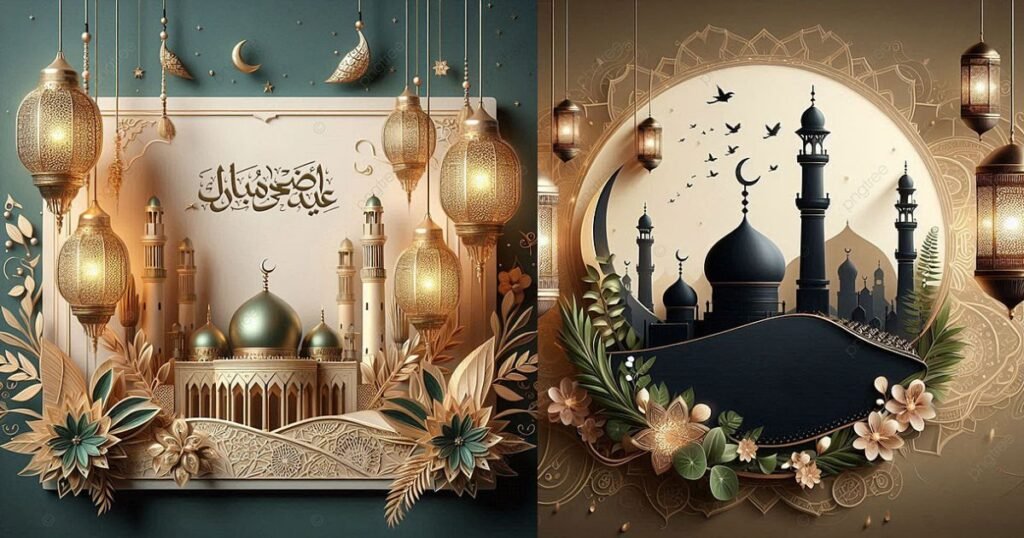
The Historical Significance of Eid ul Adha
The roots of Eid ul Adha Mubarak can be traced back to the remarkable story of Prophet Ibrahim (peace be upon him) and his son, Ismail (peace be upon him). According to Islamic teachings, Allah (SWT) commanded Prophet Ibrahim to sacrifice his beloved son as a test of his faith and obedience. Despite the immense emotional turmoil, Prophet Ibrahim and his son willingly submitted to the divine command, demonstrating their unwavering trust in Allah.
As Prophet Ibrahim was about to sacrifice his son, Allah (SWT) intervened and replaced Ismail with a ram, sparing his life. This profound act of sacrifice and submission became a model for Muslims worldwide, symbolizing their devotion to Allah and their willingness to make sacrifices in His name.
The Rituals and Traditions of Eid ul Adha
Eid ul Adha Mubarak is celebrated on the 10th day of Dhu al-Hijjah, the 12th month of the Islamic lunar calendar. The festivities begin with the performance of the Eid prayer, which is typically held in open spaces or mosques, where Muslims gather to offer their prayers and seek forgiveness from Allah (SWT).
Qurbani: The Act of Sacrifice
One of the most significant rituals of Eid ul Adha Mubarak is the Qurbani, or the sacrifice of an animal, usually a lamb, goat, cow, or camel. This ritual is performed in commemoration of Prophet Ibrahim’s willingness to sacrifice his son and serves as a symbolic act of submission to Allah (SWT). The meat from the sacrificed animal is divided into three parts: one for the family, one for relatives and friends, and one for the less fortunate members of society.
Eid Celebrations and Gatherings
Eid ul Adha Mubarak is a time of great joy and celebration, where Muslims around the world gather with their families and loved ones. Homes are decorated, new clothes are worn, and special dishes and sweets are prepared. Children often receive gifts and money (Eidi) from elders, adding to the festive spirit.
In many Muslim communities, Eid prayers are followed by visits to family and friends, exchanging greetings and well-wishes. Community gatherings, feasts, and charity events are also organized, fostering a sense of unity and compassion among Muslims.
Spiritual Significance and Lessons of Eid ul Adha
Beyond the rituals and celebrations, Eid ul Adha Mubarak holds profound spiritual significance for Muslims. It is a time to reflect on the values of sacrifice, obedience, and submission to the will of Allah (SWT). The festival serves as a reminder of the importance of putting one’s faith above all else and being willing to make sacrifices for the sake of Allah.
Furthermore, Eid ul Adha Mubarak teaches Muslims the virtues of charity, generosity, and compassion towards others, especially the less fortunate members of society. The act of sacrificing an animal and distributing its meat among the needy is a symbolic representation of these values.
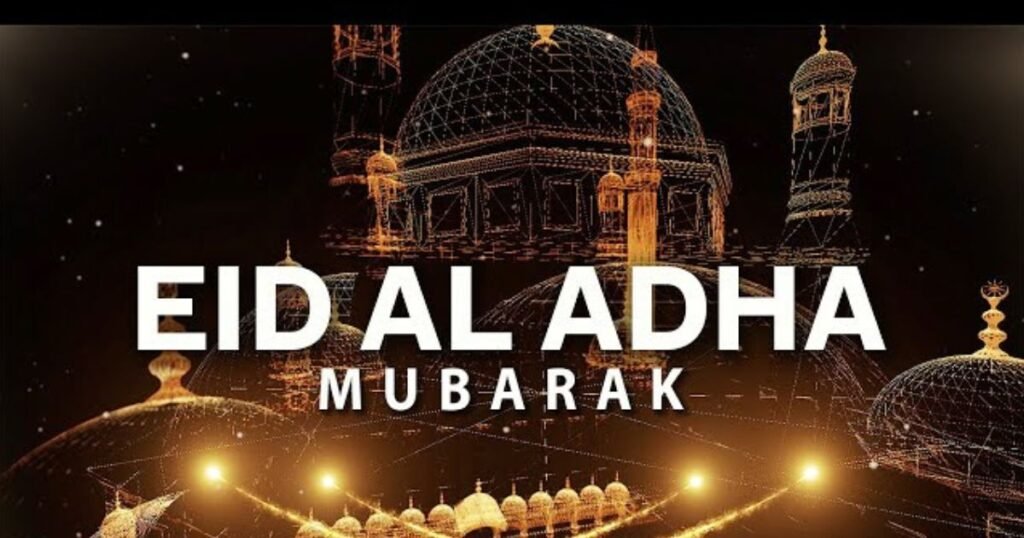
Eid ul Adha Mubarak and the Jamia Saeedia Dar Ul Quran
The Jamia Saeedia Dar Ul Quran, a renowned Islamic institution, plays a pivotal role in fostering the spirit of Eid ul Adha Mubarak and promoting its teachings within the community. Through its various educational programs and initiatives, the institution strives to impart knowledge and understanding of the festival’s significance and its underlying values.
Special Eid ul Adha Programs at Jamia Saeedia Dar Ul Quran
During the days leading up to Eid ul Adha Mubarak, Jamia Saeedia Dar Ul Quran organizes a series of special programs and events aimed at educating and preparing the community for the festival. These programs may include:
- Lectures and Seminars: Renowned scholars and Islamic experts are invited to deliver lectures and seminars, providing in-depth insights into the historical background, spiritual significance, and practical aspects of Eid ul Adha Mubarak.
- Quranic Recitations and Nasheeds: Special Quran recitation sessions and nasheed (Islamic vocal music) performances are organized, creating an atmosphere of spiritual upliftment and reverence.
- Community Service Initiatives: The institution encourages its students and members to participate in community service activities, such as distributing food and essential supplies to the underprivileged, visiting orphanages, and organizing charity drives.
- Eid Prayers and Celebrations: On the day of Eid ul Adha Mubarak, Jamia Saeedia Dar Ul Quran hosts a grand Eid prayer gathering, followed by celebrations, feasts, and cultural programs, fostering a sense of unity and togetherness within the community.
The Role of Jamia Saeedia Dar Ul Quran in Promoting Unity and Compassion
Eid ul Adha is not only a celebration of sacrifice but also a testament to the unity and compassion that Islam promotes. Jamia Saeedia Dar Ul Quran plays a crucial role in nurturing these values within the community by organizing various activities and initiatives.
- Interfaith Dialogues and Outreach Programs: The institution organizes interfaith dialogues and outreach programs, bringing together people from diverse religious backgrounds to promote understanding, tolerance, and harmony.
- Charity and Humanitarian Initiatives: Jamia Saeedia Dar Ul Quran actively supports and participates in charity and humanitarian initiatives, providing aid and assistance to those in need, regardless of their religious or ethnic backgrounds.
- Community Engagement and Awareness Campaigns: The institution conducts awareness campaigns and community engagement programs, addressing social issues, promoting civic responsibilities, and fostering a sense of compassion and empathy towards others.
Conclusion
Eid ul Adha is a monumental occasion that celebrates the unwavering faith, sacrifice, and obedience of Prophet Ibrahim (peace be upon him) to Allah (SWT). This festival serves as a powerful reminder of the importance of submission to the divine will, the virtues of selflessness, and the spirit of unity and compassion that Islam promotes.
Through its various educational and community programs, Jamia Saeedia Dar Ul Quran plays a pivotal role in fostering the true essence of Eid ul Adha and promoting its teachings within the community. By organizing lectures, seminars, and charitable initiatives, the institution aims to instill the values of sacrifice, generosity, and compassion in the hearts and minds of its students and members.
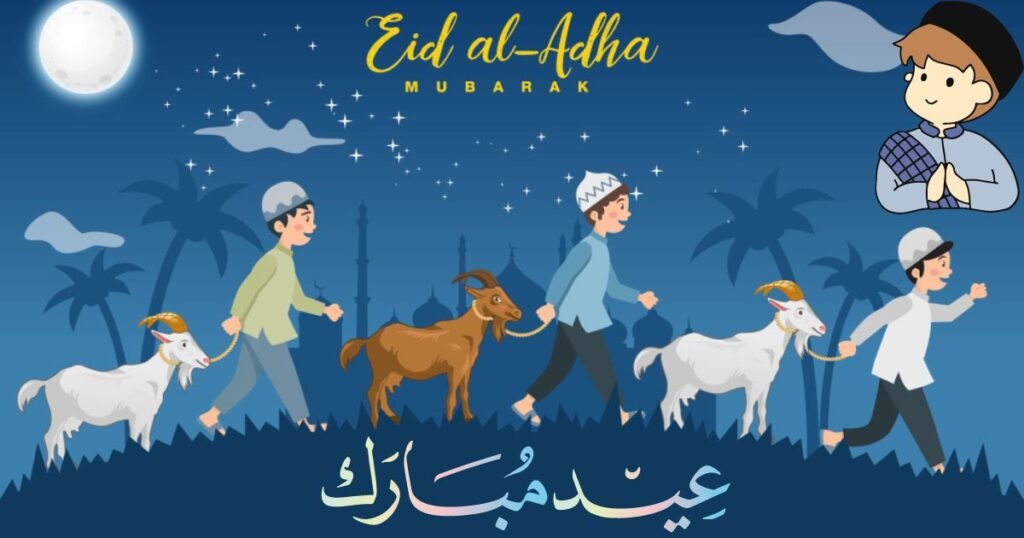
Read More: Eid ul Adha Mubarak
FAQs about Eid ul Adha
Q: What is the significance of sacrificing an animal on Eid ul Adha Mubarak?
The sacrifice of an animal on Eid ul Adha Mubarak is a symbolic representation of Prophet Ibrahim’s willingness to sacrifice his son, Ismail, as a test of his faith and obedience to Allah (SWT). This act serves as a reminder of the importance of making sacrifices for the sake of Allah and submitting to His divine will.
Q: How is the meat from the sacrificed animal distributed?
The meat from the sacrificed animal is typically divided into three parts: one for the family, one for relatives and friends, and one for the less fortunate members of society. This practice promotes the values of charity, generosity, and compassion towards others.
Q: Can non-Muslims participate in Eid ul Adha Mubarak celebrations?
Yes, non-Muslims are welcome to attend and participate in Eid ul Adha celebrations, as it is an opportunity to promote understanding, tolerance, and cultural exchange. However, they may not partake in certain religious rituals or practices specific to Muslims.
Q: How is Eid ul Adha celebrated in different parts of the world?
While the core rituals and practices of Eid ul Adha Mubarak are consistent across the globe, celebrations may differ in various regions and cultures. Some communities may have unique traditions, such as special dishes, cultural performances, or particular ways of adorning homes and public spaces.
Q: What is the significance of wearing new clothes on Eid ul Adha Mubarak?
Wearing new clothes on Eid ul Adha Mubarak is a tradition that symbolizes the renewal of faith and the celebration of a fresh start. It is also a way to honor and respect the occasion by dressing in one’s best attire.
Q: Can Eid ul Adha be celebrated on different days in different regions?
Yes, due to the variations in sighting the new moon, which determines the start of the Islamic month, Eid ul Adha Mubarak may be celebrated on different days in different regions or countries. However, the festival is typically observed within a day or two of each other globally.
Q: What is the importance of performing the Eid prayer?
The Eid prayer is a congregational prayer performe.
Q: Is it mandatory for all Muslims to perform the sacrifice on Eid ul Adha Mubarak?
While the act of sacrifice (Qurbani) is highly encouraged and carries great spiritual significance, it is not mandatory for all Muslims to perform it. Those who cannot afford to sacrifice an animal or have valid reasons for not doing so are exempted from this obligation.
Q: Can the meat from the sacrificed animal be sold or traded?
No, the meat from the sacrificed animal is not meant to be sold or traded. It is intended for personal consumption, distribution among family and friends, and charity to the less fortunate members of society. Selling or trading the meat would go against the spirit of sacrifice and generosity associated with Eid ul Adha.
Q: How can one prepare for Eid ul Adha spiritually?
To prepare for Eid ul Adha spiritually, Muslims are encouraged to engage in acts of worship, such as reciting the Quran, performing additional prayers (Nawafil), seeking forgiveness from Allah (SWT) and others, and reflecting on the teachings and lessons of the festival. It is also recommended to engage in charitable acts and extend kindness and compassion towards others.



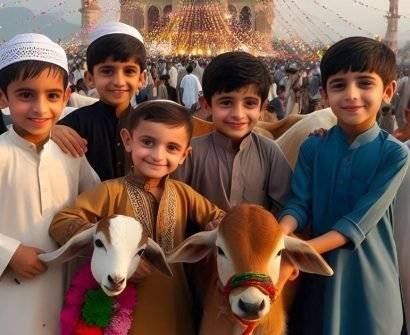
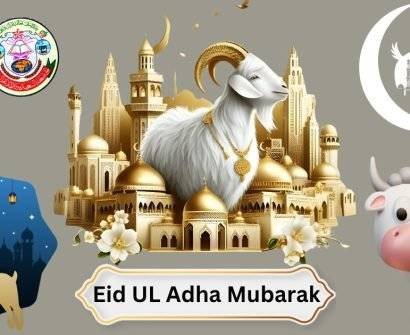




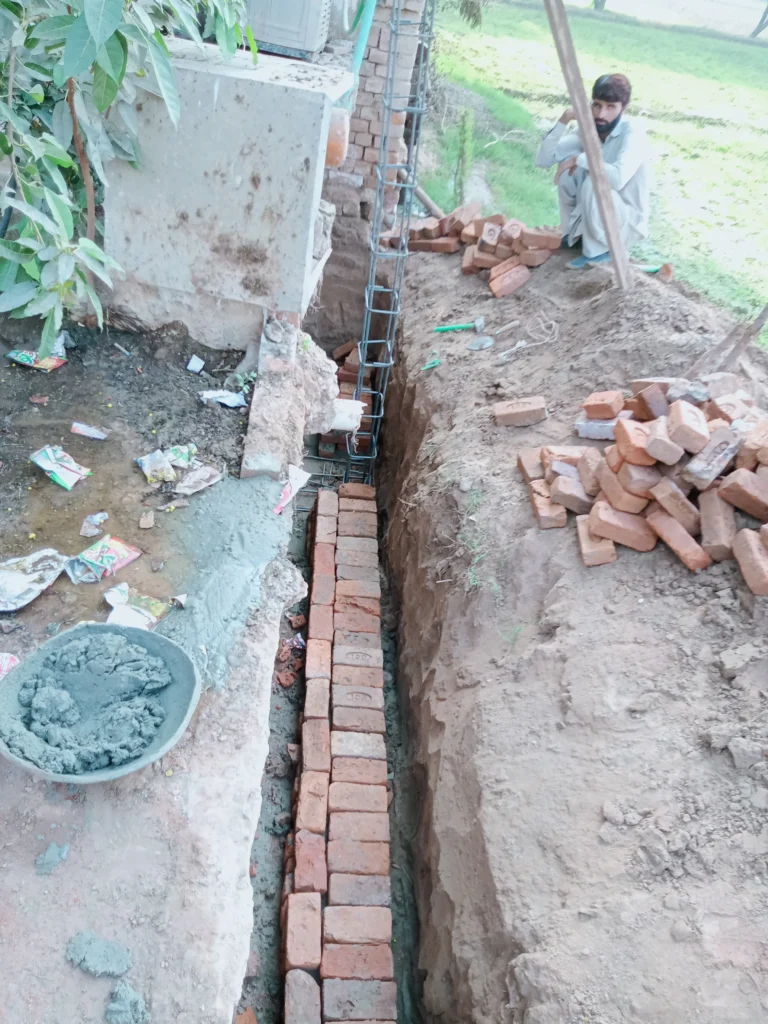

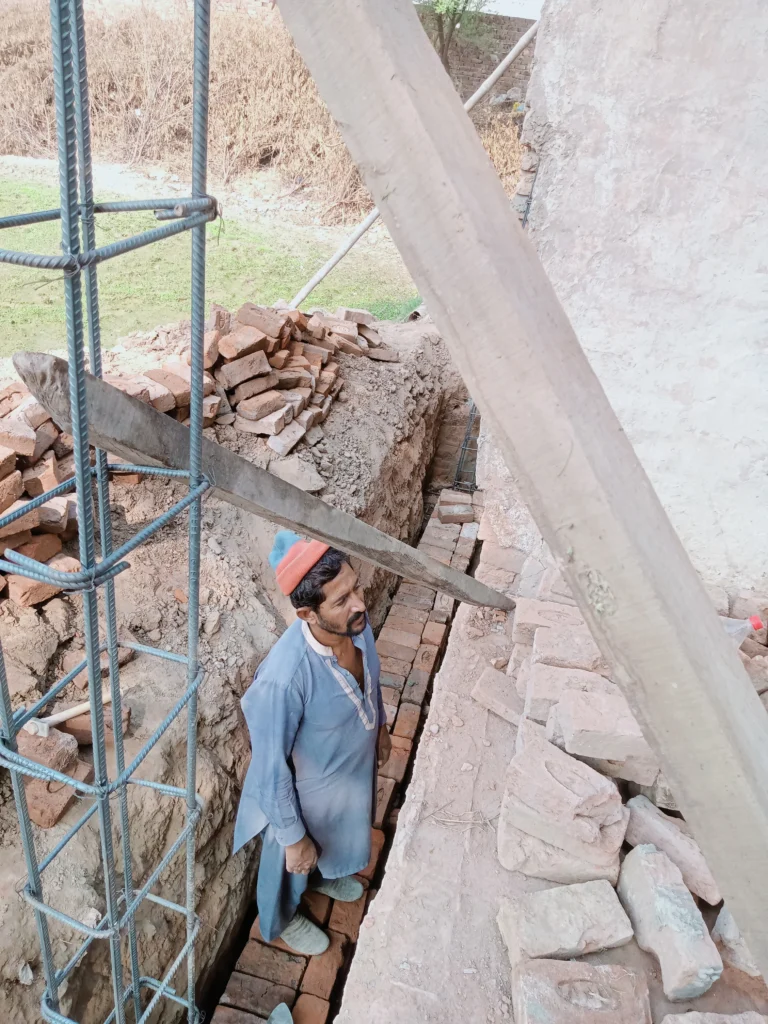
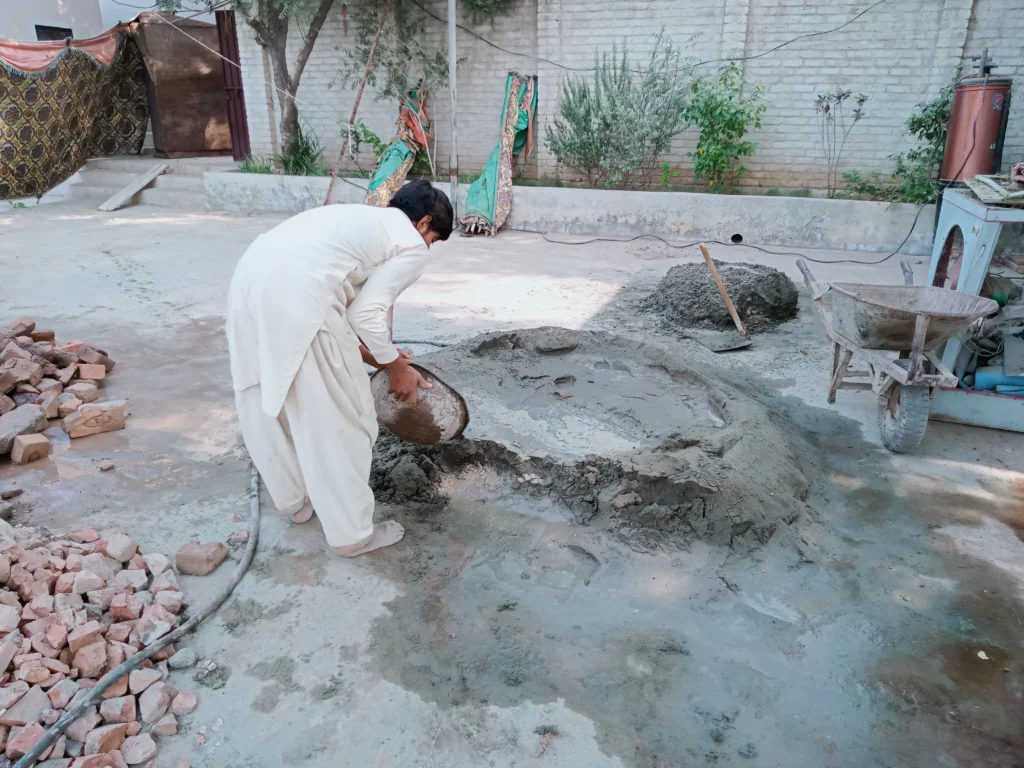
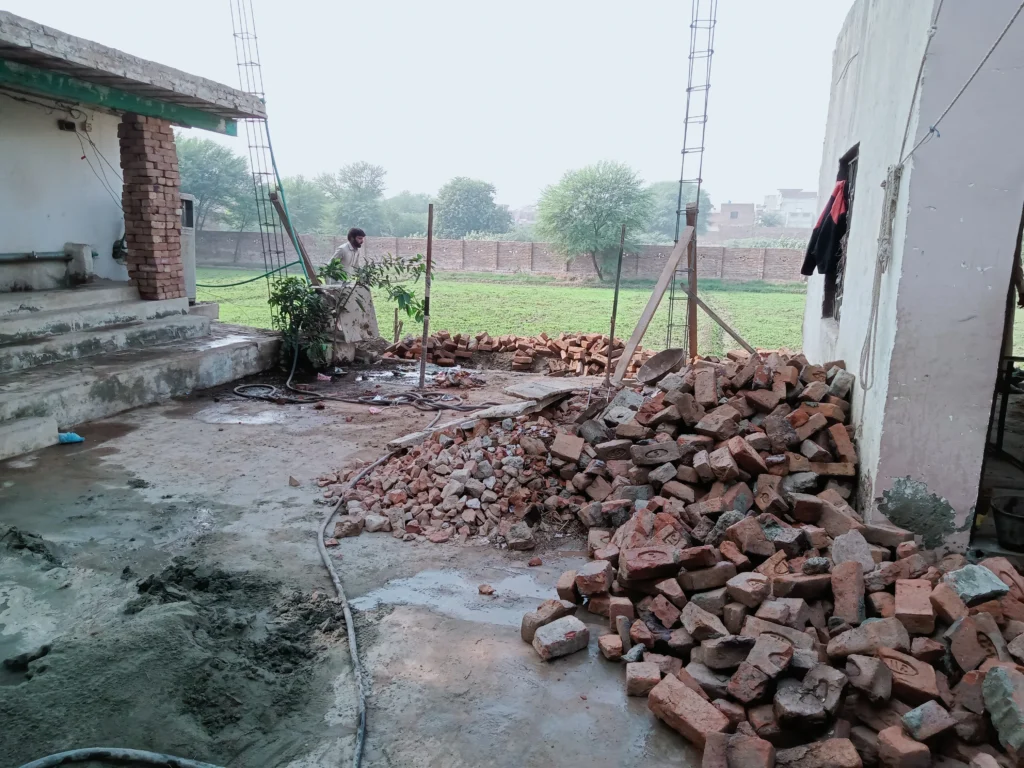
Eid UL Adha Mubarak, Openers FT. Animation & Blessing Bakra Eid Mubarak 2024
[…] Read More: Eid ul Adha Mubarak […]